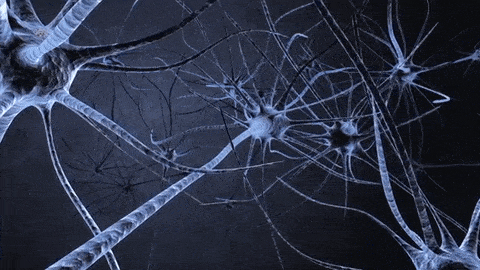What is neuroplasticity, and why should we care?
If you’ve just hopped onto the StudyTime website, had a look at this title and thought this sounds like a MOUTHFUL, rest assured. We can guarantee you are not the only one who has not heard of neuroplasticity, or hasn’t the faintest idea what it is. The rest of this article is going to neatly unpack that all for you!
It’s a concept that might be foreign to you right now, but you’ll come to learn that it plays a significant role in how you learn, retain information, and think about things. Basically, it’s important to pretty much every single aspect of your life. (Every part of your life that involves thinking thoughts, that is).

First, we will tell you all about what neuroplasticity actually is, broken down into concepts that are a little easier to swallow than the word itself. Then we’ll dive right into why you should actually care about the words you’re reading, and how you can improve your ability to learn, and make those new all-important connections in your brain!
It’s All in the Name
There’s absolutely no point trying to convince anyone of the importance of neuroplasticity if they don’t actually know what it is. If we break the word down, it may start to seem a bit deceptive. The ‘neuro’ part might be obvious if you’ve watched enough Grey’s Anatomy, but for those of you who don’t enjoy medical dramas so much, they’re talking about the brain.

What “Neuroplasticity” Really Means
The term “neuro” comes from a way of writing “neurons” in shorthand. Neurons are the little cells that make up our nervous systems, and they’re responsible for sending and receiving all of the signals to and from your brain.
These signals are what tell your muscles all sorts of things, like when to move and whether or not you’re doing something that might cause pain. If you suddenly step on super hot concrete in bare feet, the neurons in your feet start firing off messages to your brain to make it aware of the heat!
Therefore, the ‘neuro’ part of neuroplasticity sounds like it’s probably something to do with your thinking and perception, right? Seems straightforward so far!

The plasticity bit is where things get a little more technical. When we say “plastic”, we aren’t referring to the type of plastic that things like Tupperware containers are made from. Instead, we’re talking about the really soft and moldable sorts of plastics that things like biscuits and crackers come in. Now you’re probably wondering, isn’t it kind of silly that they’re spending so long talking about plastic?
And you’re right. Let’s get back to the brain.
When we’re talking about “plasticity” in terms of the brain, it actually means that the brain is exactly like that soft, flexible plastic. It refers to how brains are very malleable, and they’re not rigid, fixed structures. They use neurons to change, adapt, and make new connections through how we interact with our environment.
- Every single time you learn something new, your neurons are tirelessly working behind the scenes to seamlessly create new connections in your brain.

To put the definition simply in a sentence, neuroplasticity is the ability of your brain to change, adapt, and learn, through how you interact with your environment.
If you’re reading this as a student, which we’re willing to bet a lot of you are, your brain is particularly good at adapting. Young brains have a lot more capacity to learn, and it’s exciting you can take advantage of this! We’ll talk more on that later, but for now, let’s think about:
Why We Should Care About Neuroplasticity
After that lengthy explanation, you’ve hopefully got a pretty good grip on what neuroplasticity is referring to. That means we can start discussing why it’s so important, especially for us students.
The concept of neuroplasticity is important to every individual on the planet because it’s what allows people to learn, think about, and memorise things. You’re currently on the StudyTime website, which means we can hazard a guess that you’re probably interested in how this relates to study.
We’ll unpack this, but it’s also important to keep in mind that neuroplasticity does not just apply to you learning how to factorise an equation in maths class.
Neuroplasticity actually has some major effects on how you live your life.
Neuroplasticity is also the reason you remember how to ride a bike, and recall the route you take to get home from school. Without it, you would be stuck with the same way of thinking and problem solving you were born with, and wouldn’t really be able to think about much at all.
Basically, what we’re trying to get across is this – you are making use of your brain’s neuroplasticity every day, without even realising it’s happening!
Neuroplasticity and Studying
Let’s zero in on how you use neuroplasticity when you’re learning. When you’re consistently remembering or practising something, your brain is artfully creating a bunch of new connections to aid you in learning. If you stop thinking about what you’re learning too soon, your brain can also “prune” these connections. (Think scissors, but in your mind.)
Essentially, what’s going on here is this – if you don’t think about something enough, your brain decides that it’s useless, and you don’t need to remember it. Then, your brain just chops that connection right off. That’s the “pruning”.

This tells us the utmost importance of, you guessed it, revision!
Let’s think about an example. If you learn a topic for an external in term two and proceed to forget about it until the end of term four when externals roll round, you’re probably going to find yourself scrambling to recall the topic. You’ve got none of those connections we mentioned earlier, and trying to last-minute cram the information to build new connections isn’t working too well for you.
This is all because your brain had not been able to fully utilise its skill at learning and memorising at the time. Those connections that once made the topic you were learning feel fresh and logical in your brain have been pruned out to make room for things you might have deemed more useful, like quoting an encyclopaedia of song lyrics.

To prevent this from happening, use your brain’s flexibility to your advantage and revisit those early-year topics with active learning techniques.
Here are some active learning technique we recommend getting stuck in with:
- Active Recall: This involves making your own questions about the topic you are learning and then proceeding to see if you can answer them on your own, without using notes. If you can’t at the start, that is totally fine, practice makes perfect!
- Teaching: Rope in one of your friends who might be a bit less knowledgeable on the subject you are learning in class, and pretend you are an expert. See if you can teach your friend the same way your classroom teacher teaches you. This not only consolidates your own knowledge, but you can check how well you can get information across to someone like an NCEA marker by testing your peers on how much they have learnt from your teachings.
- Make some mnemonic devices: Mnemonics are different ways you can break down and remember big chunks of information. Remember learning the colours of the rainbow as ROY. G BIV? That’s a mnemonic! They can also be rhymes, like I before E, except after C. Have a go at making your own for concepts you might need memorised for an external.
Improving Different Aspects of Neuroplasticity
Those study methods we just talked about are excellent for improving your memory and skill in regard to study, but there are countless other general ways to improve your neuroplasticity. The word itself acts as a sort of ‘umbrella’ for all sorts of important thinking skills outside of just memory. This means that there’s different ways you are able to improve these different aspects. Let’s look into some!
Coordination
Say you’re not only a student, but also an avid sportsperson. Even at your peak of physical fitness, you might have neglected to remember your brain plays a role in your coordination, which is almost definitely a huge part of whatever sport tickles your fancy.
To improve your coordination, try playing video games. You heard us right – an educational website is encouraging you to play video games.

Research demonstrates that playing about sixteen hours of puzzle games over the span of a few weeks, can have a notable effect on your spatial recognition. This can then transfer into you being a pro at recognising where volleyballs are going to land, or what angle to kick your rugby ball through the goalposts.
Concentration
The worst feeling in the world is sitting down to complete an assignment and even though your phone is off, you have a clean desk, and white noise is playing in your headphones, you just cannot concentrate. Good news! Neuroplasticity has a hand in being able to be used to improve your concentration.
To aid your brain in being able to successfully focus, try picking up an instrument. Learning how to read and play music proves to be super helpful in assisting the brain’s ability to stay focused, especially when you combine it with other creative outlets such as dancing or exercising.

Musicians quite literally have different brains to those who do not learn instruments, so if you’re looking to be creative and also improve your brain’s function, definitely consider those piano lessons mum has been nagging you about.
Memory
If you leave class thinking that everything your teacher just explained to you has gone into one ear and out of the other, or continuously use proven study methods to learn concepts, and you still seem to be struggling to remember things, you might need to investigate some skills to improve your memory.
A way proven to help improve your ability to remember things is actually a skill that involves, well, remembering some other things. To be more specific, learning a new language is super beneficial for your brain. Try downloading an app like DuoLingo, and spending a few minutes a day picking up French or Spanish.
Your memory isn’t the only thing that you’ll see improvement in, either! Learning another language is also going to help you think creatively, and expand your vocabulary!

To Conclude
Caring for your brain is important! You simply cannot live without it.
Now that you have reached the end of this article, you not only know what neuroplasticity actually is, but you’ve also got some ideas as to how you can improve your own neuroplasticity, and have a teeny bit of fun along the way.
As long as you’re learning – and we hope that you’re going to be learning new things for a very long time – these tips will do a wonderful job of keeping your brain active, young, and ready to take in lots of new information.

0 Comments